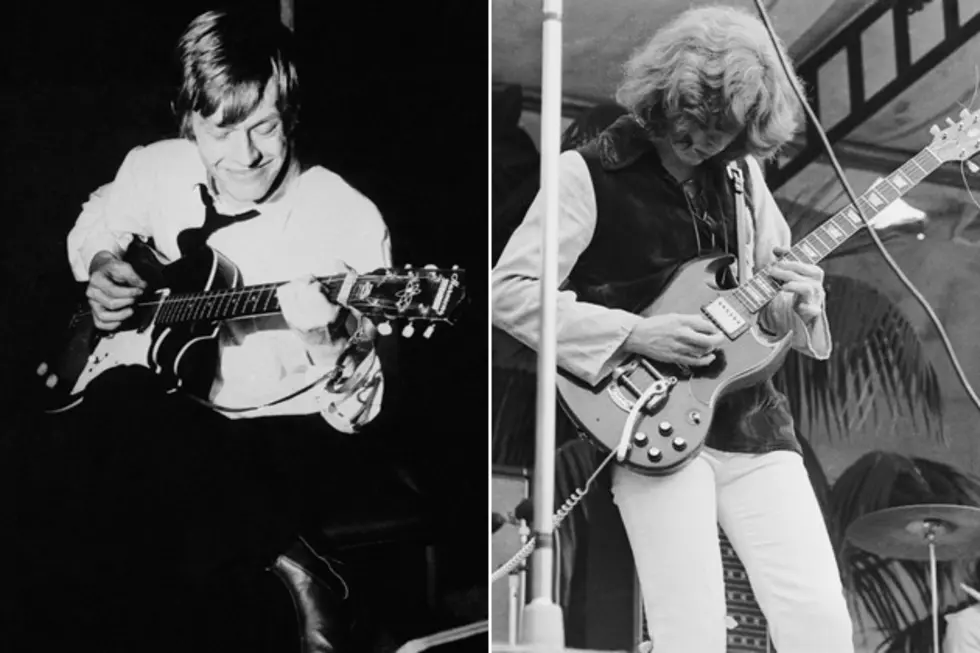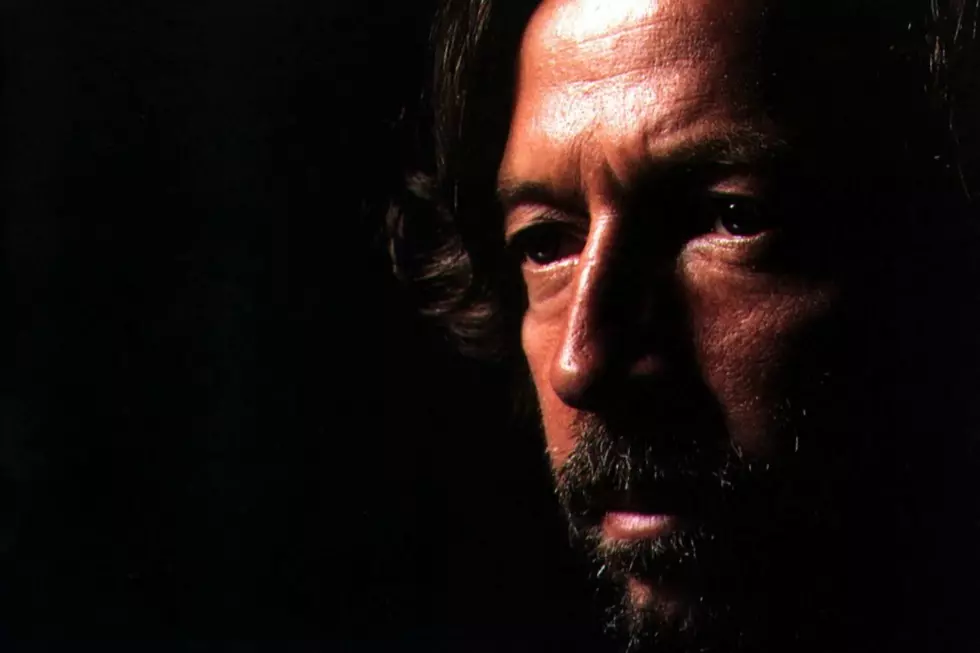
10 Most Successful Lineup Changes
There are plenty of classic bands who would love to say that they engineered one of the most successful lineup changes in rock history. But the fact is that a key lineup change (whether it's due to drugs, death or "creative differences") can severely alter a band's sound... and success. There's a certain magic that happens when the right musicians get together, and changing just one element in that recipe can lead to disaster. Below are 10 examples of successful groups who changed a significant member, but persevered to reach similar (and, sometimes, even greater) levels of creativity and popularity.
- 10
Deep Purple
These hard rock titans might as well have installed a revolving door on their tour bus. During the band's initial run (1968-76), Deep Purple went through four distinct lineups. And each had their own sound, from the prog group fronted by Rod Evans in the late '60s ('Hush'), to the pioneering proto-metal of the band led by Ian Gillan ('Smoke on the Water') to the boogieing hard rock of the incarnation featuring singer David Coverdale ('Burn'). Deep Purple is currently on Mark VIII, which includes one founding member: drummer Ian Paice, who's been part of every lineup.
- 9
Pretenders
After releasing two of the greatest rock albums of the new wave era, the original Pretenders lineup underwent tragic events that would have permanently silenced most bands. In less than a year, the group lost founding members James Honeyman-Scott (guitar) and Pete Farndon (bass) to drug-related deaths. Determined to soldier on, frontwoman Chrissie Hynde recruited a few friends to record the pop hit 'Back on the Chain Gang,' before forming a new version of the Pretenders with journeyman guitarist Robbie McIntosh in the lineup. In 1984, that version of the band released 'Learning to Crawl,' which stands with the group's greatest works. The lineup has since continued to rotate behind Hynde.
- 8
Small Faces/Faces
What do you do when one of rock's greatest singers leaves your band? You merely bring on another one. After Small Faces frontman Steve Marriott stormed out of a New Year's Eve gig and formed Humble Pie with Peter Frampton, his former bandmates pilfered Rod Stewart and Ronnie Wood from the Jeff Beck Group. Because Ron and Rod were a bit taller than the rest of the boys (Ian McLagan, Ronnie Lane and Kenney Jones), the "small" part of the name was disposed of. That wasn't all that changed. The mod pop group turned into a rough and ragged rock and roll band. More than a few punks were paying attention.
- 7
The Yardbirds
The Yardbirds can count not just one, or two, but three – count ’em, three – of the greatest guitarists in rock history as former members. When Eric Clapton departed the group in favor of further pursuing the blues, he suggested session player Jimmy Page as a replacement. Page, who was enjoying his session earnings, suggested Jeff Beck instead. A year later, Page took the opportunity to join the Yardbirds on bass (although he quickly switched to share co-lead guitar duties with Beck). Not only did the band inspire many of the great hard rock bands to come, the (New) Yardbirds actually turned into Led Zeppelin in 1968.
- 6
Fleetwood Mac
The words Fleetwood Mac mean drastically different things depending on if you’re talking to a general pop music fan or a British blues die-hard. The group began in the late ’60s as an outgrowth of John Mayall’s Bluesbreakers, with Peter Green at the helm of the post-psychedelic blues-rockers (responsible for ‘Oh Well,’ ‘The Green Manalishi’ and the like). As Green spiraled into mental illness, namesake members Mick Fleetwood and John McVie found themselves transitioning to softer rock with the recruitment of John’s wife Christine in 1971 and the duo of Lindsey Buckingham and Stevie Nicks in 1975. It’s more than a ‘Rumour’ that this lineup became the most celebrated.
- 5
Van Halen
At the zenith of their popularity – following a multi-platinum album, a No. 1 hit and a wildly successful world tour – Van Halen just couldn’t hold it together. Frontman David Lee Roth and the rest of the members parted company, and more than a few executives predicted that Roth would endure and the other boys would fade into semi-obscurity. Some fans were no less enthused when Sammy Hagar (fresh off ‘I Can’t Drive 55’) was revealed as the new singer. And yet, with Hagar, the band went on a streak of four #1 albums, beginning with 1986’s ‘5150,’ and armloads of hit singles.
- 4
Pink Floyd
It’s a similar story to Fleetwood Mac’s. Pink Floyd earned early distinction as a late ’60s psychedelic pop outfit masterminded by Syd Barrett, who was the driving force behind ‘The Piper at the Gates of Dawn.’ But when Syd’s mental issues began to take a toll on the group, the other members, along with newly hired guitarist David Gilmour, took control. This version of Pink Floyd would meddle with all sorts of sonic experiments before hitting gold (or is it platinum) with 1973’s prog classic ‘The Dark Side of the Moon.’ Other progressive rock epics filled out the rest of the band’s remarkable ’70s run.
- 3
Allman Brothers Band
How do you replace a member who’s not only a guitar genius, he’s half of the reason for your band’s name? The answer is: you don’t. When Duane Allman died in a motorcycle crash at the age of 24 in 1971 – just as the band was coming into its own – his brother Gregg and fellow guitarist Dickey Betts found a way to keep on ramblin’ without him. They completed the landmark recording, ‘Eat a Peach,’ and soon scored two of their most enduring hits with ‘Ramblin Man’ and ‘Jessica.’ A new guitarist didn’t join the band until a 1978 reunion. Future lineups included guitar greats such as Warren Haynes and Derek Trucks, who continue to pay tribute to the late, great Skydog.
- 2
AC/DC
You just can’t rattle AC/DC. It’s no wonder that these legends, who have blasted out their brand of metallic blues for decades, didn’t skip a beat following the sad death of Bon Scott in 1980. Not only did Angus Young and the band continue, they found a guy who could wail in nearly the same manner as Scott, Brian Johnson. AC/DC played through the pain to deliver ‘Back in Black,’ a tribute to their fallen comrade that included monster hits like the title track and ‘You Shook Me All Night Long.’ Oh, and it eventually became the second best-selling album… ever. Johnson continues to use his unholy screech to belt out AC/DC classics of all eras.
- 1
The Rolling Stones
The old joke is that after nuclear Armageddon, the only things left on Earth will be cockroaches and Keith Richards. Old Keef is rock’s ultimate survivor, but so are the Stones, who’ve endured the departures of significant members. Brian Jones formed the band, named the band and fostered the Stones’ blues-rock formula. When he became marginalized by the Jagger/Richards songwriting team, he became an invaluable multi-instrumentalist – before succumbing to drug addiction, getting fired and drowning. Mick Taylor then came aboard as the young gun, who aided the band in its remarkable winning streak during the late ’60s/early ’70s and played the best guitar solos ever heard on Stones recordings. When Taylor tired of the grind, Ronnie Wood stepped up (talk about rock’s great survivors). He’s been part of the Richards/Wood “guitar weaving” team so long, it’s easy to think that he’s always been a Stone. Keep on rolling.
More From Ultimate Classic Rock









